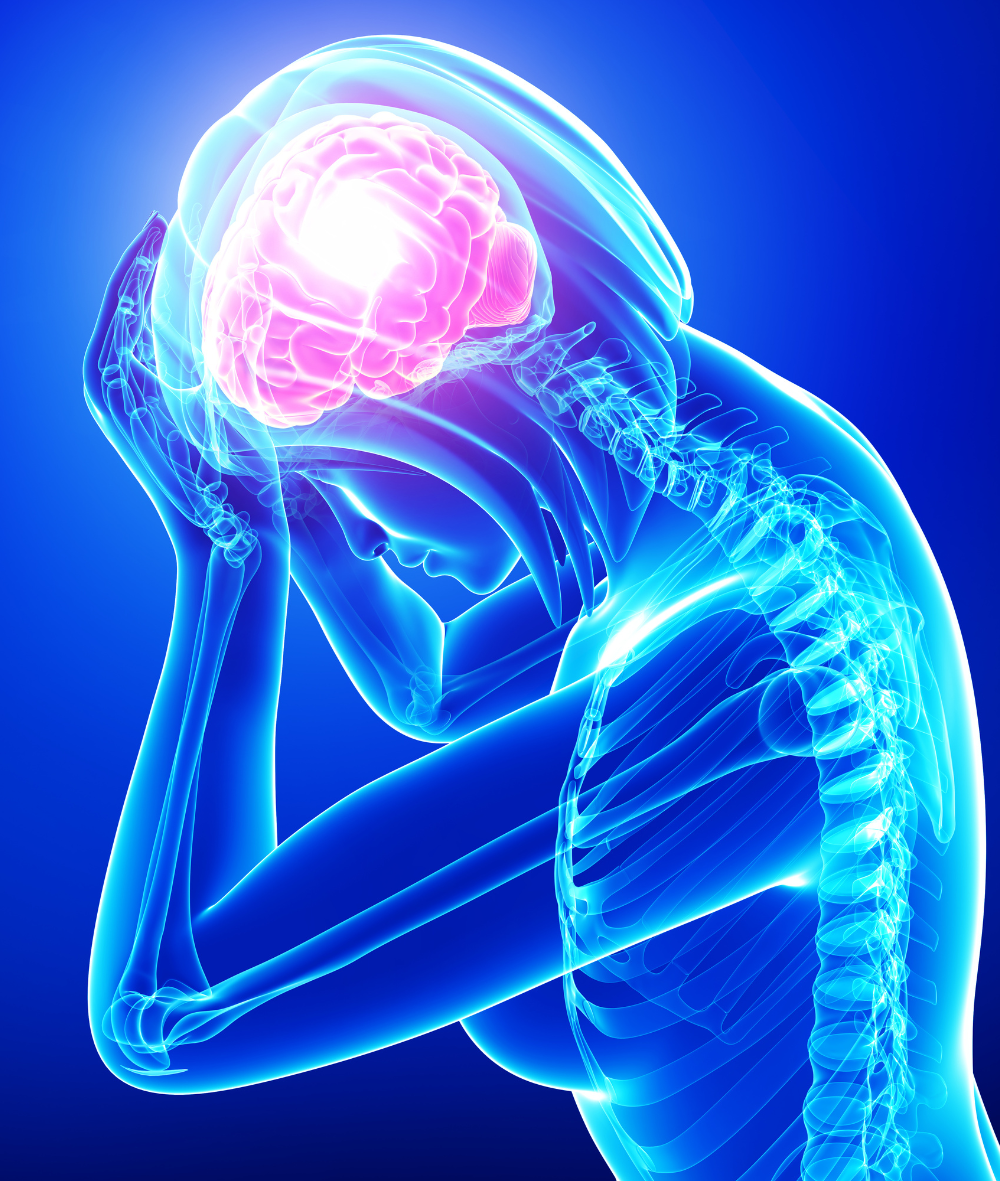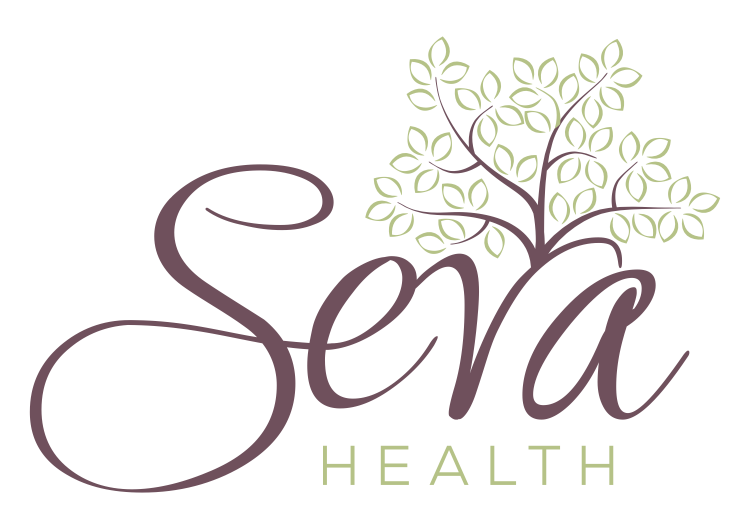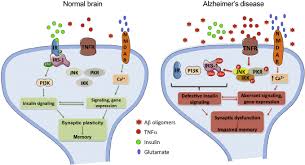
14 Aug Know Your Risks: Menopause and Alzheimer’s Disease
|
Brain fog, fatigue, and forgetfulness – these are all symptoms my clients tell me about in my functional medicine practice. Because of this, brain health and hormones are always on my radar. I always want to provide the most up-to-date and research-backed options available. Alzheimer’s disease is a major healthcare crisis, affecting an estimated 5.7 million Americans. As the most common type of dementia, Alzheimer’s is a neurodegenerative disease characterized by the presence of beta-amyloid and tau proteins within brain and nerve cells. This condition disproportionately impacts menopausal women, with 3.2 million diagnosed cases. While aging, family history, and genetics are unmodifiable risk factors, the link between hormones and Alzheimer’s, particularly in menopausal women, is becoming clearer. The Impact of Menopause on Alzheimer’s RiskMenopause marks a significant transition in a woman’s life, often accompanied by various physical and psychological changes. When ovaries stop producing estrogen and progesterone during menopause, women may experience brain changes associated with Alzheimer’s, including:
Early identification of metabolic risk factors like insulin resistance and hormonal imbalances may help delay or reduce the progression of Alzheimer’s disease. Insulin Resistance and Alzheimer’sInsulin resistance, a condition that affects how the body processes glucose, can increase the risk of developing chronic diseases, including Alzheimer’s, diabetes, and obesity. It is also linked to other health problems like high blood pressure, high cholesterol, and breast and endometrial cancer. Insulin resistance can cause fatigue and weight gain, common symptoms during menopause. Addressing insulin resistance and hormonal imbalances early on is crucial in mitigating the risk of Alzheimer’s disease in women. Why Should You Do an Alzheimer’s Risk Assessment?An Alzheimer’s Risk Assessment utilizes the groundbreaking p-Tau217 biomarker for early and accurate detection of Alzheimer’s disease. This biomarker is a reliable indicator of Alzheimer’s pathology, including extracellular amyloid-beta plaques and intracellular neurofibrillary tangles of hyperphosphorylated tau (p-tau), even before clinical symptoms appear. Convenient and Cost-Effective A simple blood draw makes this testing more accessible and cost-effective compared to traditional methods like lumbar puncture or imaging studies. This convenience encourages more individuals to seek early assessment and potentially alter the course of the disease through timely intervention. Highly Accurate Results The p-Tau217 biomarker shows a strong correlation with PET imaging and cerebrospinal fluid (CSF) testing, ensuring highly accurate results. This accuracy provides confidence in the diagnosis and helps guide appropriate treatment and management strategies. Comprehensive Clinical Information Support An Alzheimer’s Risk Assessment offers detailed clinical information support materials. These resources help healthcare providers understand and interpret the results, aiding in the early detection and diagnosis of Alzheimer’s disease and allowing for better-informed decision-making. Take Action TodayEarly identification and intervention are key to managing Alzheimer’s disease! By understanding your risk factors and taking proactive steps, you can potentially delay or reduce the progression of this debilitating condition. An Alzheimer’s Risk Assessment provides a convenient, cost-effective, and highly accurate means of early detection! Schedule a consultation today to discuss your risk factors and explore the benefits of early Alzheimer’s detection Don’t wait—take control of your health and future now.
Don’t Wait! Build A Better Brain Today!
There’s nothing quite like a refreshing glass of cold water in the summer, especially when it’s infused with the flavors of nature. Fruit-infused water is a delightful treat all year! As a child, I cherished the days spent on my grandparents’ five-acre farm, where I would pick fresh peaches from the trees and pluck juicy strawberries from the vines. Those sun-soaked summers in rural Georgia ingrained in me the belief that food truly is medicine. Fruits are rich in antioxidants, which help shield our bodies from illness. More importantly, they are a vital source of water, essential for the health of our brain, organs, tissues, and every living cell. This collection of easy recipes is crafted to keep you well-hydrated while inspiring creativity in the kitchen. I hope you enjoy each one as much as I do.
Thirty years ago, I was passionate about my career in critical care medicine. From car accidents to cardiac arrests, I learned the fascinating science of heart-lung medicine and assisted with emergency procedures that saved lives. But after twenty years in the ER and ICU, I knew it was time to get out in the community to not only save lives but improve the quality of life. So, I dusted off my duffle bag and went to graduate school to become a nurse practitioner and open my own practice.. But shortly after opening my own practice, I found myself immersed in a different ‘critical care’ – Alzheimer’s disease and dementia – a crippling disease that impacts not only the patient but their entire family. After opening my own practice, I found myself deeply involved in a different kind of ‘critical care’—one that focuses on Alzheimer’s disease and dementia. These devastating conditions not only affect the patient but also take a heavy toll on their families.
Did You Know:
I’ve created a special edition of Healthy Housecalls With Angel that’s all about brain health, giving you the tools to build a healthier brain. Delivered twice a month, this subscriber-only newsletter focuses on functional nutrition to help you make smarter food choices.
Subscribe to Build A Better Brain Newsletter + Community Today to Get:
Start your journey to better brain health and enjoy greater vitality, focus, and presence in your daily life. Click the button to say Yes, Angel. I want to build a better brain today!
GET YOUR FREE BONUS!Subscribe today and you’ll get access to my latest eBook: Build A Better Brain With The MIND Diet. The MIND Diet is designed to optimize overall health and has been shown to benefit brain health in particular! Your MIND Diet ebook includes:
Fit & Functional Nutrition Corner
Slow-roasted salmon is one of the simplest and most brain-boosting dishes you can make at home. This simple, tasty meal not only incorporates the HB 5 Food Groups but also packs in 7 of the 10 brain-healthy food groups from the MIND diet—berries, leafy greens, fish, legumes, whole grains, vegetables, and extra-virgin olive oil—all in one meal.
*Live Rewind*Missed out? No worries – you can catch up and listen in today!
I recently came across new research highlighting 17 medications that could significantly affect your health and liver function—important information you need to know! Tune in to discover more, and get the tips, tools, and strategies to help you live a longer, healthier life. Join me every Friday at 12 PM ET, where you can ask me (almost!) anything and connect with others who are also on a journey to live longer and better!
Recharge Your Brain for Life! What’s New in My Health Toolkit
Do you struggle with low energy or trouble focusing?Mood disorders and mental illnesses impact millions across the U.S., often linked to imbalances in neurotransmitters—chemical messengers that influence mental performance, emotions, and energy. Hormones and neurotransmitters are closely connected, so an imbalance in one can disrupt the other, creating a challenging cycle that’s tough to diagnose. The Vibrant Wellness Neurotransmitters panel identifies these imbalances, offering a comprehensive view to help uncover the root cause of chronic physical and mental conditions. By measuring key neurotransmitters and their metabolites, this panel can provide insights that may benefit those with neurological disorders like Alzheimer’s, Parkinson’s, ADHD, or mood disorders, as well as anyone experiencing related symptoms.
Health Research + News You Can UseSugar substitute erythritol may increase risk for heart attack and stroke, study finds
Erythritol, a sugar substitute commonly used in keto-friendly and other reduced-sugar products, may increase risk for negative cardiovascular events such as heart attack and stroke, according to new research from the Cleveland Clinic. Sugar-free products containing erythritol are often recommended for people with obesity, diabetes or metabolic syndrome as ways to manage sugar and calorie intake. Erythritol is one ingredient in the common calorie-free stevia sweetener Truvia, for example. People with these conditions are already at higher risk for adverse cardiovascular events such as stroke.
Catch Up on the Podcast!
How can something as simple as building a garden help you build a better brain? Join me for a relaxing evening in my garden tomorrow at 7PM EDT as I team up with my friend Maurice Smith to talk about Soil, Soul & Spirit. Relax, unwind, and leave inspired!
We Want to Hear from You! With millions of people around the world we know there are a lot of stories how small changes in lifestyle led to great success. We’re sure you have one of those stories! Take a moment to share your story and get the chance to be showcased in our new Reader Spotlight right here and on our blog. Send us your story and we’ll also include it in an upcoming copy of our newsletter! Let’s connect! |




No Comments